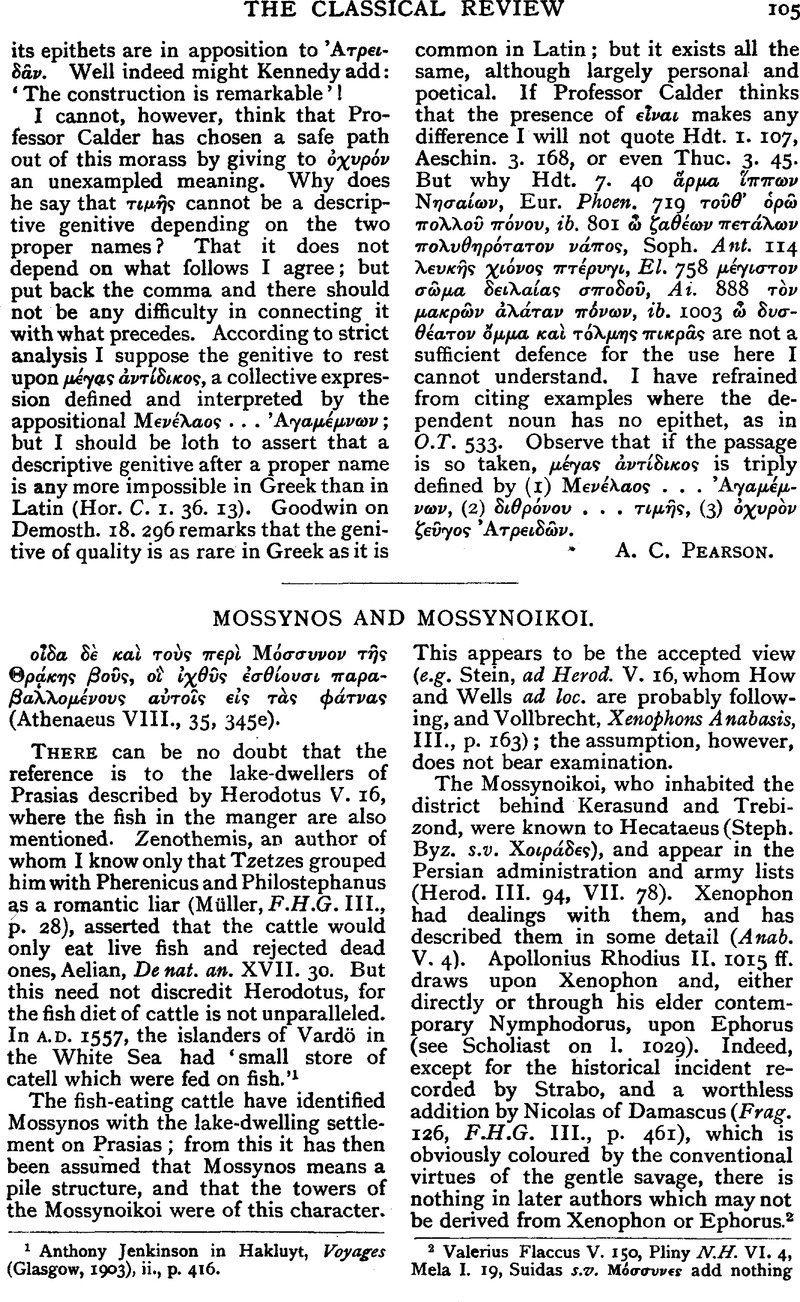No CrossRef data available.
Article contents
Mossynos and Mossynoikoi
Published online by Cambridge University Press: 27 October 2009
Abstract

- Type
- Original Contributions
- Information
- Copyright
- Copyright © The Classical Association 1923
References
page 105 note 1 Jenkinson, Anthony in Hakluyt, Voyages (Glasgow, 1903), ii., p. 416.Google Scholar
page 105 note 2 Valerius Flaccus V. 150, Pliny N.H. VI. 4, Mela I. 19, Suidas s.v. Μόσσυνες add nothing con to our purpose. There are two curious but unconvincing glosses in Hesychius, s.v.v. Mοσσυνικ μαζονομεῖα and Mοσσνοικοι, which go back to Didymus.
page 106 note 1 It is even probable that the mossyns were not dwelling-houses but timber structures in the village, which served as refuges in case of attack. Thus each village of the Ossetes, a border folk of Iran, is said to contain one or more square towers, 40 to 60 feet high, built of stone, into which the inhabitants flee in time of danger. Klaproth, , Reise in den Kaukasus und nach Georqien, II. (1814), p. 609Google Scholar, and Koch, , Reise durch Russland nach dem kaukasischen Isthmus in den Jahren 1836–7–8, II. (1843) pp. 15, 113Google Scholar, quoted by Lidén, E., lsquo;Folknamnet Mosynoiker,’ Strena Philologica Upsaliensis, Festskrift tillägnad Professor Per Persson, 1922Google Scholar. I owe not only the reference, but also a summary of the contents of this paper, to the kindness of Mr. E. Harrison.
page 106 note 2 The Scythian Mossynoikoi must rest upon the rather unconvincing gloss on Μόσσυνες in Hesychius, ![]() .
.
page 107 note 1 Professor Calder points out that the etymology favoured by the Greeks involves two considerable assumptions — viz., that the word corresponding to οἶκος in another Indo-Germanic language (a) lost the F, and (b) meant lsquo;house.’


